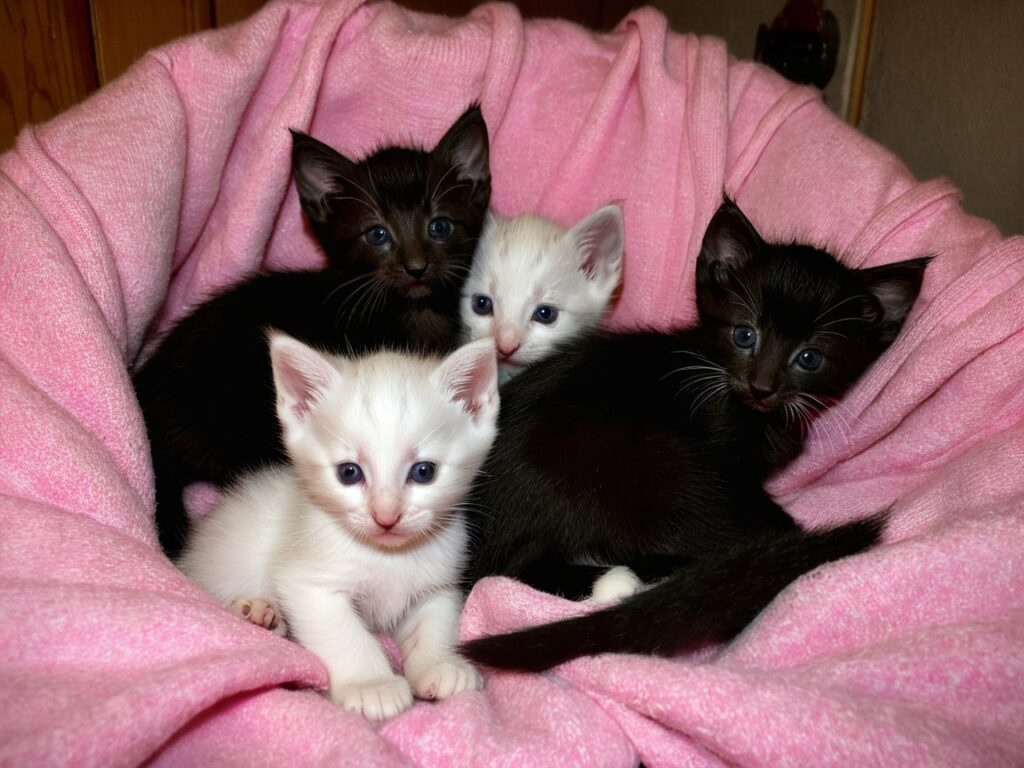Understanding the Health Needs of Orphaned Kittens
Orphaned kittens, lacking the care of their mother, are incredibly vulnerable and require specialized attention to ensure their survival and well-being. Their immune systems are underdeveloped, they struggle to regulate their body temperature, and their nutritional needs are highly specific. This article will provide a comprehensive guide to understanding the critical health needs of these tiny creatures, covering everything from feeding and warmth to disease prevention and socialization.
The Initial Assessment: A Vital First Step
Before diving into the specifics of caring for orphaned kittens, a thorough initial assessment is paramount. Begin by observing the kitten for any obvious signs of distress or illness. Is it alert and responsive, or lethargic and weak? Check for any visible injuries, deformities, or discharge from the eyes or nose. Gently palpate the abdomen to assess for any bloating or tenderness.
Take the kitten’s temperature rectally, using a lubricated pediatric thermometer. A normal temperature for kittens ranges from 99.5°F to 102.5°F. Hypothermia (low body temperature) is a common and life-threatening problem in orphaned kittens, particularly in the first few weeks of life. If the kitten is cold, immediate warming is essential before attempting to feed it.
Weighing the kitten is also crucial. Kittens typically gain weight steadily, and monitoring their weight helps ensure they are receiving adequate nutrition. Keep a daily weight record to track their progress. A healthy kitten should gain approximately 10-15 grams per day.
Creating a Safe and Warm Environment
Maintaining a stable and warm environment is critical for the survival of orphaned kittens. They lack the ability to regulate their own body temperature effectively, making them highly susceptible to hypothermia.
-
Provide a Heat Source: Use a heating pad set on low, wrapped in a towel or blanket, or a Snuggle Safe disc. Be sure to provide the kitten with enough space to move away from the heat source if it gets too warm.
-
Temperature Control: The ideal ambient temperature for newborn kittens is around 85-90°F for the first week, gradually decreasing to 75-80°F by four weeks of age. Use a thermometer to monitor the temperature in the kitten’s enclosure.
-
Safe Enclosure: A cardboard box, pet carrier, or plastic tub lined with soft bedding makes an appropriate enclosure. Ensure the enclosure is clean and dry. Regularly clean and disinfect the bedding to prevent the spread of disease.
-
Avoid Drafts: Keep the enclosure away from drafts and direct sunlight.
Nourishment: Meeting the Unique Dietary Demands
Proper nutrition is essential for the growth and development of orphaned kittens. Cow’s milk is not suitable for kittens, as it lacks the necessary nutrients and can cause diarrhea.
-
Kitten Milk Replacer (KMR): Use a commercially available kitten milk replacer, which is specifically formulated to meet the nutritional needs of kittens.
-
Feeding Schedule: Newborn kittens need to be fed every 2-3 hours around the clock. As they grow, the frequency of feedings can be gradually reduced.
-
Proper Feeding Technique: Use a commercial kitten bottle or a syringe to administer the milk replacer. Hold the kitten in a natural nursing position and allow it to suckle at its own pace. Avoid forcing the milk, as this can lead to aspiration pneumonia.
-
Burping: Just like human babies, kittens need to be burped after each feeding. Gently pat or rub their back to help them release any trapped air.
-
Weaning: Begin introducing solid food, such as a high-quality wet kitten food, at around 3-4 weeks of age. Gradually decrease the amount of milk replacer as the kitten consumes more solid food.
Addressing Potential Health Issues in Orphaned Kittens
Orphaned kittens are particularly vulnerable to a variety of health problems, including infections, parasites, and congenital defects. Vigilant observation and prompt veterinary care are essential.
-
Upper Respiratory Infections (URIs): URIs are common in orphaned kittens and can cause sneezing, nasal discharge, and eye discharge. Veterinary treatment with antibiotics may be necessary.
-
Diarrhea: Diarrhea can be caused by a variety of factors, including overfeeding, improper feeding technique, or parasitic infections. Consult with a veterinarian to determine the underlying cause and appropriate treatment.
-
Fleas and Worms: Orphaned kittens are often infested with fleas and worms. Use a kitten-safe flea preventative and dewormer, as recommended by your veterinarian.
-
Fading Kitten Syndrome: Fading kitten syndrome is a term used to describe a cluster of problems that can affect newborn kittens, including failure to thrive, hypothermia, and respiratory distress. It’s crucial to seek immediate veterinary care if you suspect a kitten is suffering from fading kitten syndrome.
The Importance of Socialization
Early socialization is crucial for orphaned kittens to develop into well-adjusted and friendly companions. Expose them to a variety of sights, sounds, and experiences during the critical socialization period, which lasts from approximately 2 to 7 weeks of age.
- Gentle Handling: Handle kittens gently and provide plenty of positive interaction, such as petting, cuddling, and playing.
- Exposure to People: Introduce kittens to a variety of people, including children, but always supervise interactions to ensure the kitten is not overwhelmed.
- Safe Play: Provide kittens with safe and stimulating toys to encourage play and exploration.
By understanding and addressing the specific health needs of orphaned kittens, you can significantly increase their chances of survival and help them grow into healthy, happy, and well-socialized cats. Remember, the care of orphaned kittens is demanding and requires dedication, but the rewards of saving these vulnerable creatures are immeasurable. Always consult with a veterinarian for personalized advice and treatment recommendations.

